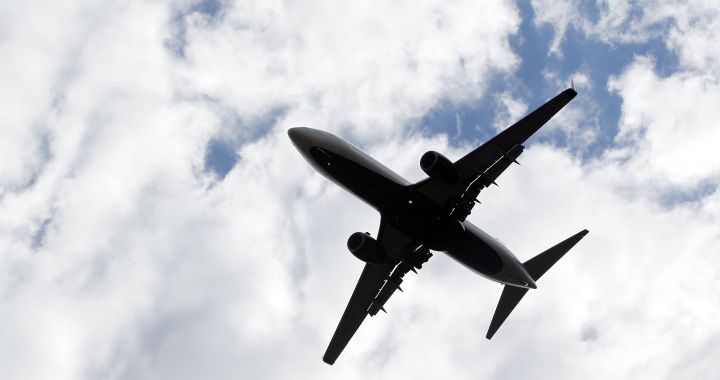Air travel accounts for a significant share of greenhouse gas emissions that make climate change worse. According to the European Commission, aviation generates 13.9% of transport-related CO2 emissions. And it goes further: the European Environment Agency (EEA) reports that EU emissions from international aviation have doubled since 1990, as the number of passengers has tripled since this year. It’s not just a CO2 problem: Aircraft engines emit other gases — nitrogen oxides (NOx), sulfur dioxide (SO2) and water (H2O) — and particles like soot. All of this is estimated to have twice the effect in terms of global warming than CO2 itself.
Now a study by the Travel Smart campaign, which includes organizations such as Spain’s Ecologistas en Acción, has released a new ranking that assesses the emissions, reduction targets and transparency of work flight information from 322 European, North American and Asian companies. Companies whose workers travel frequently by plane, on business trips, which represent a significant percentage of the total.
The conclusions do not really invite optimism. Almost all of the Spanish companies analyzed do not set targets for reducing emissions related to business travel. Of the 18 Spanish companies analyzed for the ranking, only one, Mapfre, has set itself a target of reduce emissions from business flights (-8% by 2024). According to Ecologistas en Acción, this is “a first step to assess but insufficient to reduce the total climate impact of its business flights”.
The best and the worst
If you look at the whole study, only 50 of 322 companies analyzed aim to reduce their business travel. And of these, only four meet all the main criteria required: declaring emissions from air travel and committing to reducing them by 50% or more by 2025 at the latest. These companies are Novo Nordisk (pharmaceuticals, Denmark), Swiss Re (financials, Switzerland), Fidelity International (financials, United Kingdom) and ABN Amro (financials, Netherlands).
On the other side of the scale, Volkswagen, KPMG and Johnson & Johnson are the top three emitters in the ranking: they do not even have emission reduction targets linked to business travel. In Spain, the companies that emitted the most in 2019 due to their business flights are Indra (62,787 tonnes of CO2), Banco Santander (53,445 t CO2) and Inditex (34,219 t CO2).
To establish the ranking, the Travel Smart campaign analyzed 10 indicators related to air transport emissions, reduction targets and company reports. Based on their score, companies are given a rating of A, B, C or D. As far as Spanish companies are concerned, the vast majority (16) obtained a C rating, while one obtained a B rating and another a D.
The study shows that 10% of companies Whoever flies the most emits as much as the remaining 90%. This demonstrates the importance for these major broadcasters to set emission reduction targets to meet the campaign’s global goal of reducing emissions from business air travel by 50% by 2025. Aviation emissions are now even more crucial than ever, in order not to exceed the 1.5°C global warming limit established in the Paris Agreement.
“Businesses they close their eyes before the damage from the flight for work”, explains Pablo Muñoz Nieto, responsible for the aeronautical and rail campaign of Ecologistas en Acción. “Most of the multinationals surveyed take little or no action on business flights, rendering any other travel purpose useless in the context of tackling climate change.”

